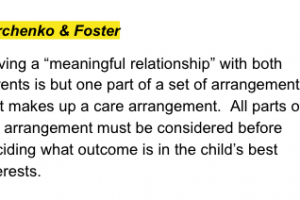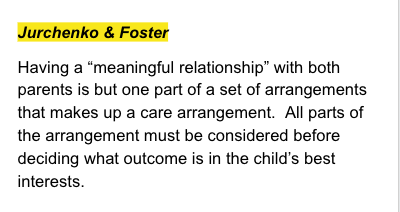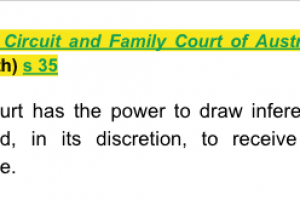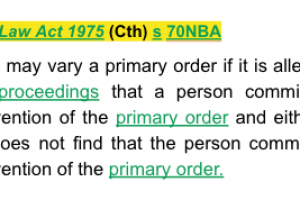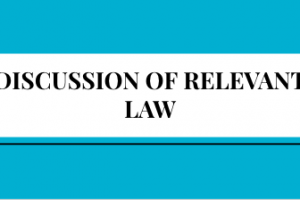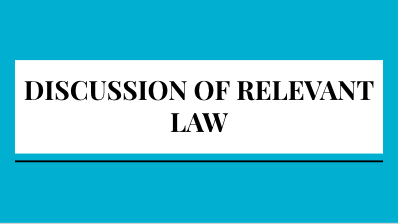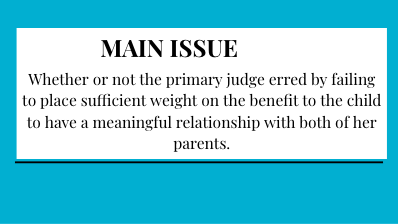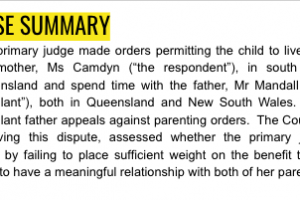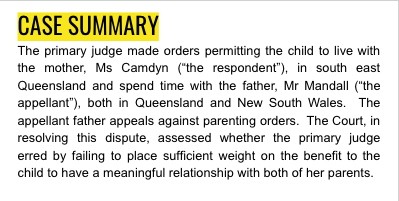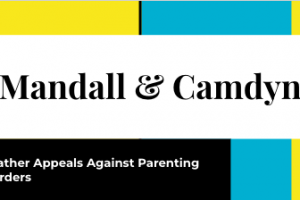- · 4845 friends
Father Appeals Against Parenting Orders

Mandall & Camdyn (No 2) [2022] FedCFamC1A 91 (17 June 2022)
The primary judge made orders permitting the child to live with the mother, Ms Camdyn (“the respondent”), in south east Queensland and spend time with the father, Mr Mandall (“the appellant”), both in Queensland and New South Wales. The appellant father appeals against parenting orders. The Court, in resolving this dispute, assessed whether the primary judge erred by failing to place sufficient weight on the benefit to the child to have a meaningful relationship with both of her parents.

Facts:
The parties met in City A, New South Wales in 2015. Shortly after the parties met, the respondent moved to south east Queensland and stayed with a relative who is now deceased. The appellant stated that the respondent moved to Queensland because she was unable to find work in City A. The appellant followed the respondent to south east Queensland in December 2015 and the parties remained living together in south east Queensland until early 2018, at which time they moved to Town B, New South Wales.
The child was born on 22 July 2018 in Town B. The parties separated in June 2019, with the appellant leaving the respondent and the child to continue living in the property that they had both rented. The respondent has been the child’s primary carer since that time. Both parties contended that the other was responsible for acts of family violence committed during the course of their relationship.
Each party sought the intervention of the New South Wales Police Force who, in response in October 2019, applied for an interim Apprehended Domestic Violence Order (“ADVO”) for the protection of the appellant and, in January 2020, applied for an interim ADVO for the protection of the respondent.
In late January 2020, the respondent unilaterally relocated with the child to Queensland on a permanent basis without the appellant’s knowledge or consent. On 2 March 2020, the respondent filed an Initiating Application in the Federal Circuit Court of Australia (as it was then known) seeking orders, inter alia, that she have sole parental responsibility and that the child be permitted to relocate with the respondent to Queensland. On 9 March 2020, the appellant filed his Response seeking, inter alia, orders for equal shared parental responsibility, for the child to immediately return to Town B with the respondent, for the child to live with the appellant and spend time with the respondent.
On 7 May 2020 orders were made, by consent, for the child to communicate with the appellant by FaceTime. The primary judge notes that, on 25 June 2020, orders were made by consent for the child to live with the respondent until further order, spend time with the appellant and for the parties to submit to drug testing. The drug tests returned negative results for both parties. On 5 November 2020, the respondent completed a parenting program in accordance with orders previously made by the Court. The primary judge made orders permitting the child to live with the mother, in south east Queensland and spend time with the father both in Queensland and New South Wales.

Issue:
Whether or not the primary judge erred by failing to place sufficient weight on the benefit to the child to have a meaningful relationship with both of her parents.

Applicable law:

Analysis:
The decision by the primary judge that it was likely that the respondent would facilitate the child having a meaningful relationship with the appellant, to the extent that it was reasonably practicable with the respondent living in south east Queensland, involved predictions and assumptions about the future based in part on perceptions, predictions and even intuition and guesswork.
The primary judge had regard to the fact that, while in the period immediately subsequent to the parties’ separation, the respondent failed to facilitate the child spending time with the appellant she subsequently made offers to the appellant to facilitate both FaceTime and face-to-face time after moving to Queensland at the end of January 2020. The primary judge recorded that the appellant did not initially avail himself of those opportunities.
Those factual findings formed a legitimate basis for the primary judge to infer that the respondent would, in the future, comply with orders of the Court with a view to the child having a meaningful relationship with the appellant. The primary judge was fully cognisant of that fact in structuring the orders which were made to ensure, to the extent that it was reasonably practicable, that the child would have a meaningful relationship with the appellant despite the fact that the respondent would continue to live in south east Queensland.
Conclusion:
The appeal is dismissed. The appellant’s Amended Application in an Appeal filed 3 February 2022 is dismissed. The appellant’s Application in an Appeal filed 7 April 2022 is dismissed.


